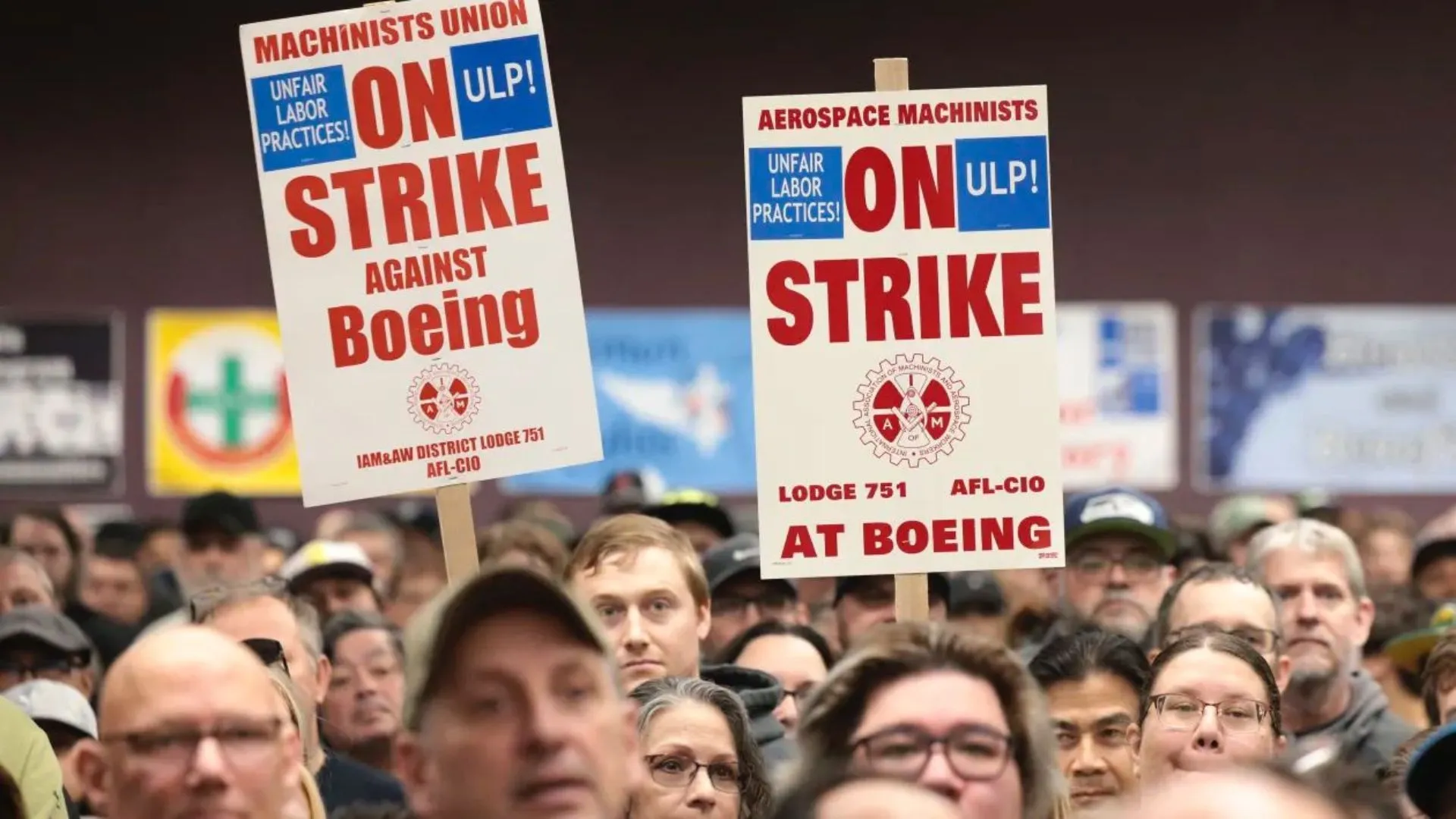

Boeing factory workers have opted to continue their strike, decisively voting against a contract offer that included a substantial 35% wage increase over four years. This decision has raised eyebrows, especially considering the ongoing financial challenges faced by the aerospace giant.
The rejection of the proposed agreement comes as a significant blow to the newly appointed CEO, Kelly Ortberg, who has vowed to improve relations with factory employees and stabilize the financially troubled aerospace giant. However, the workers’ discontent goes beyond just the numbers on the table.
The rejection of the contract stems from a deep-seated frustration among workers, many of whom feel they have been shortchanged in previous negotiations. A decade ago, workers faced similar circumstances when Boeing pushed through a deal that eliminated traditional pensions under the threat of relocating production. The lingering bitterness from that experience plays a significant role in the current standoff.
Jon Holden, the union’s lead contract negotiator, articulated the emotional toll this has taken on the workforce. “This membership has gone through a lot; there are some deep wounds,” he stated after the vote, emphasizing the need for renewed negotiations to mend the relationship between the company and its employees.
While a 35% wage increase may seem generous, workers are demanding more. The union has sought a 40% pay raise and the return of defined-benefit pensions, which would provide long-term security and stability for employees. For many workers, the proposed wage hike does not adequately compensate for years of stagnant wages that failed to keep pace with inflation.
Additionally, workers have expressed frustration at Boeing’s priorities, noting that while their wages have lagged, the company has invested billions in stock buybacks and executive bonuses. This disparity has fueled anger and a sense of betrayal among employees, further motivating their decision to strike.
The strike, which began on September 13, has resulted in significant disruptions, halting production of key aircraft models, including the 737 MAX and the 777. With over 30,000 machinists participating, the impact is felt not only within Boeing but throughout the entire aerospace supply chain, which is already under financial pressure.
Boeing‘s ongoing financial difficulties have intensified the urgency for a resolution. The company is navigating a precarious situation, having announced plans to cut 17,000 jobs and seeking to raise $15 billion from investors to maintain its credit rating. With the stakes this high, workers feel that their demands must be met to ensure a more equitable future.
As the presidential election approaches on November 5, both Boeing and the International Association of Machinists (IAM) face increasing pressure to reach an agreement. The union’s leadership is contemplating whether to involve the White House for additional support in negotiations, signaling how crucial this labor dispute has become in the broader economic landscape.
Aviation consultant Scott Hamilton remarked on the situation, stating, “It’s bad news for everybody — Boeing, labor, suppliers, customers, and even the national economy.” The implications of this strike extend beyond the factory floors; they resonate throughout the industry and the economy as a whole.
MUST READ | IMF’s Gita Gopinath Warns ‘Potential’ Global Trade War Could Slash World Economy by 7%
Maharashtra Deputy Chief Minister Eknath Shinde on Wednesday strongly criticized Shiv Sena (UBT) chief Uddhav…
The extreme weather, which has impacted parts of Tennessee, Arkansas, Missouri, Kentucky and Indiana, is…
BJP MP Kangana Ranaut has lauded the passage of the Waqf Amendment Bill, calling it…
The Rajya Sabha witnessed a tense moment during the discussion on the Waqf Amendment Bill…
During his visit to Thailand, Prime Minister Narendra Modi witnessed a presentation of Ramakien, Thailand’s…
Rubio reassured European allies of America’s commitment to NATO, stressing the US remains "as active…